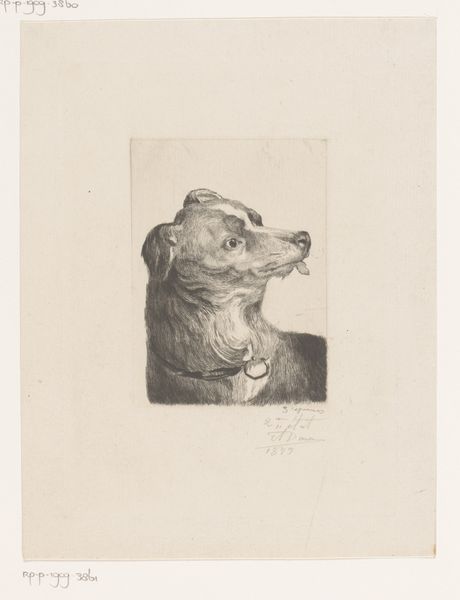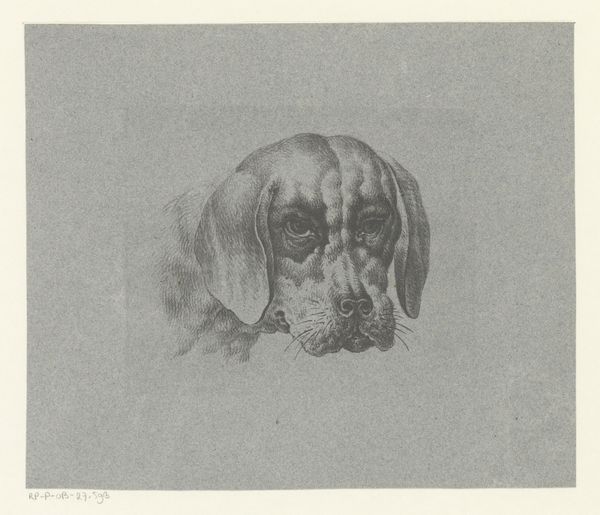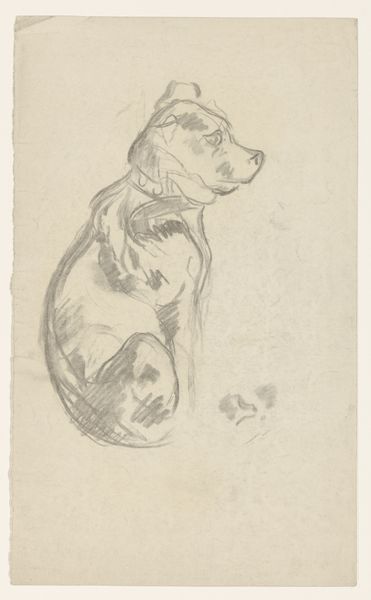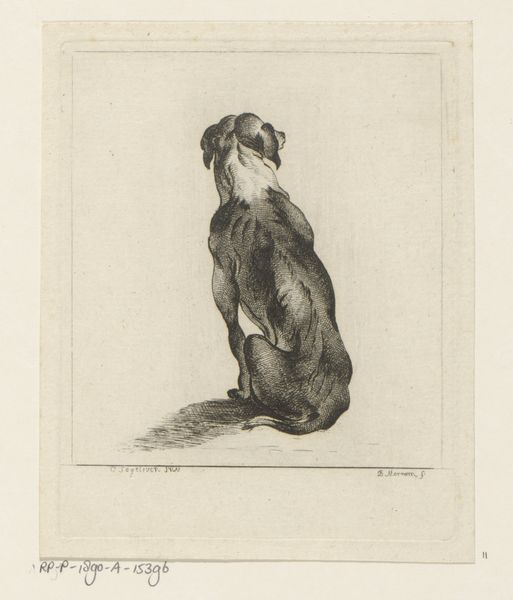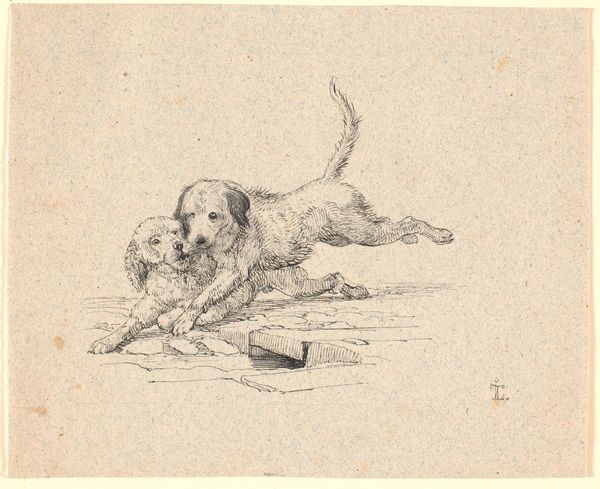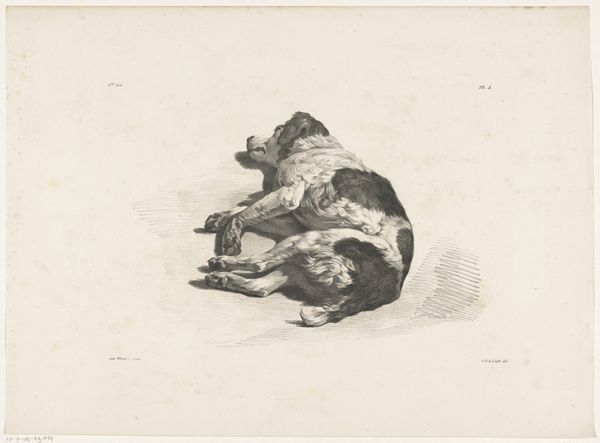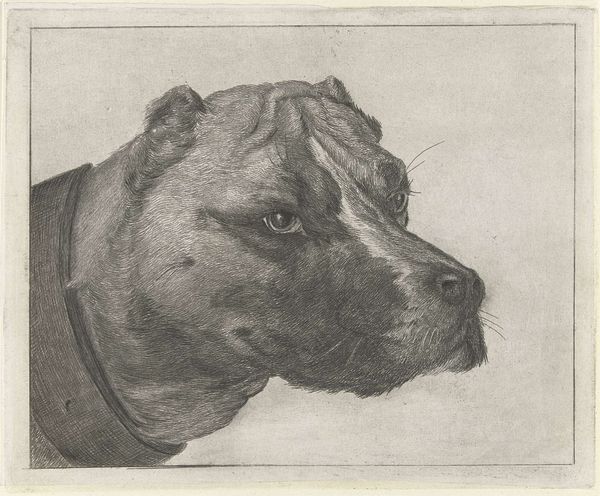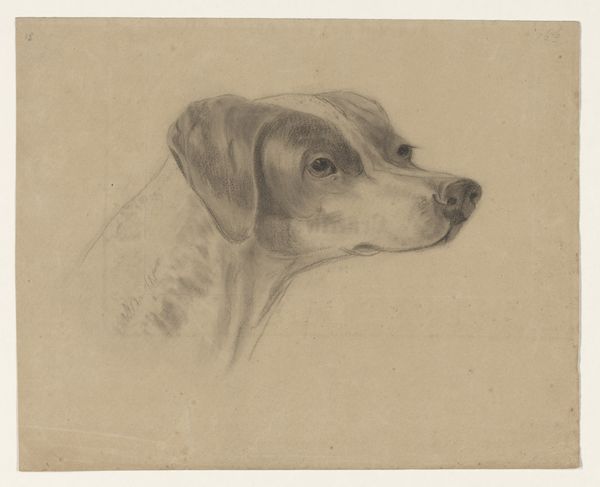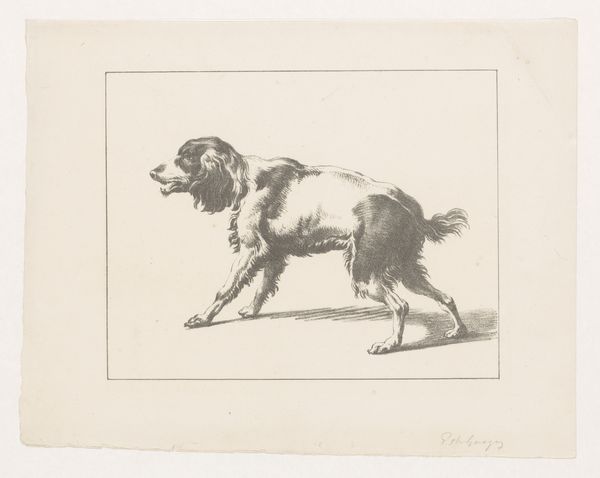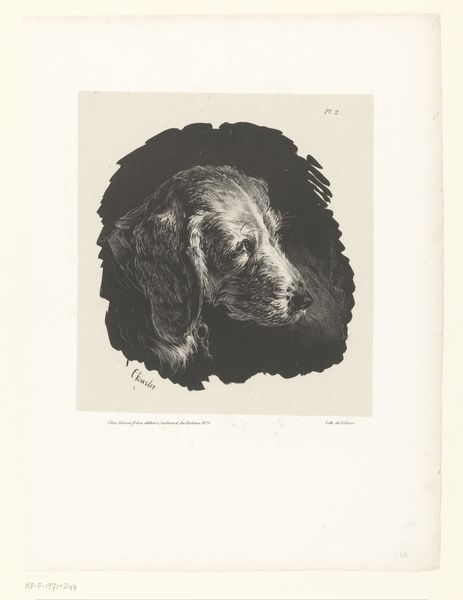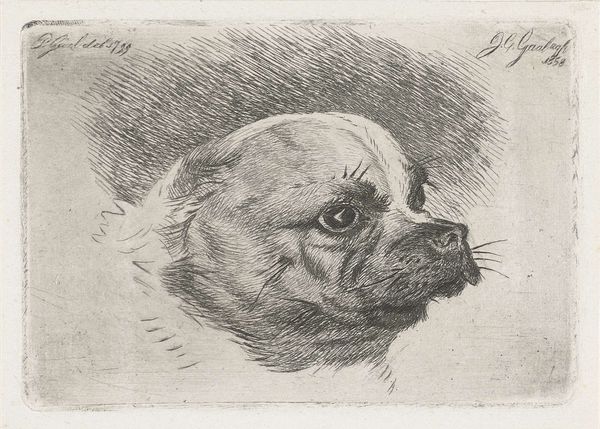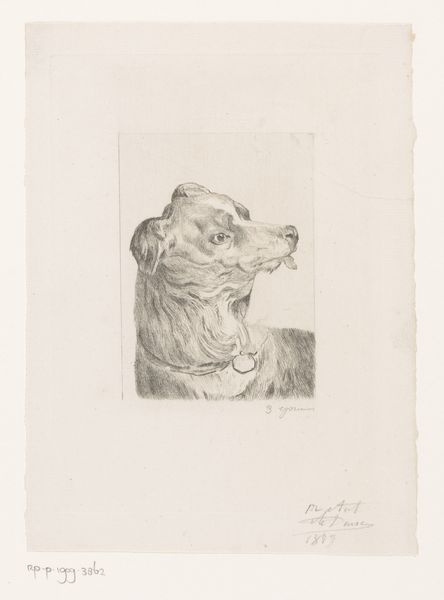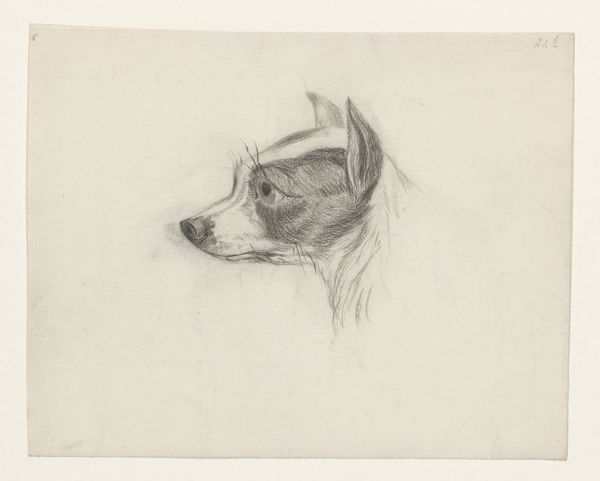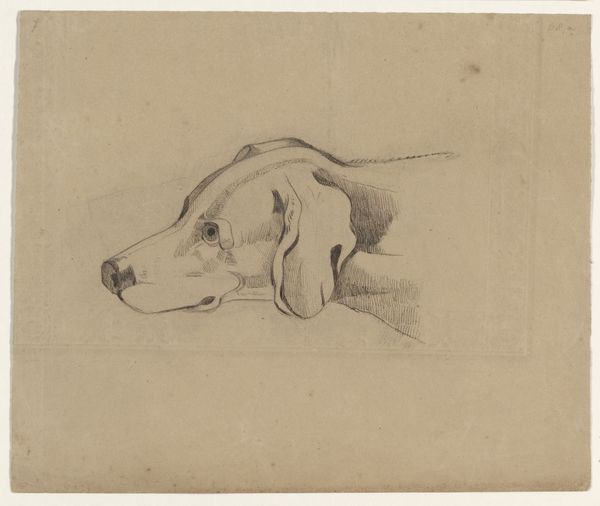
#
pencil drawn
#
light pencil work
#
shading to add clarity
#
pencil sketch
#
old engraving style
#
personal sketchbook
#
pencil drawing
#
pen-ink sketch
#
sketchbook drawing
#
pencil work
Dimensions: height 127 mm, width 194 mm
Copyright: Rijks Museum: Open Domain
Editor: Here we have Pieter Bartholomeusz. Barbiers's "Hondenkop met halsband," dating from around 1809 to 1837. It's a delicate pencil drawing, quite detailed actually. What do you see in this piece, from your perspective? Curator: The drawing provides insight into 19th-century modes of production. Note the precision, clearly the product of careful labor, and consider the materiality itself – the graphite pencil, a relatively new tool at the time allowing for nuanced shading and detail, shaping artistic expression. How does the depiction of the dog’s collar speak to the societal structure reflected within? Editor: The collar does seem quite formal. It makes me think about the dog's status and the material wealth implied by even a simple accessory. Was drawing like this common? Curator: Absolutely. It demonstrates the role of drawing, not always as a standalone art form, but frequently a means to study and document. Barbiers carefully uses the available materials. The texture he creates indicates a knowledge of layering and the subtleties one can achieve through mass production methods, influencing mark making and its social connotations. Editor: I guess I never really considered the social impact even something like a pencil could have. That's a good point about dogs representing class distinctions too. Curator: Exactly! What else is revealed about consumer society by these types of images? Editor: I hadn't thought about the process of pencil drawing or the social status implicit in owning a pet with a fancy collar. Thanks for highlighting the historical materials involved and what they tell us about 19th-century life. Curator: And thank you for opening up your mind to alternative perspectives.
Comments
No comments
Be the first to comment and join the conversation on the ultimate creative platform.
